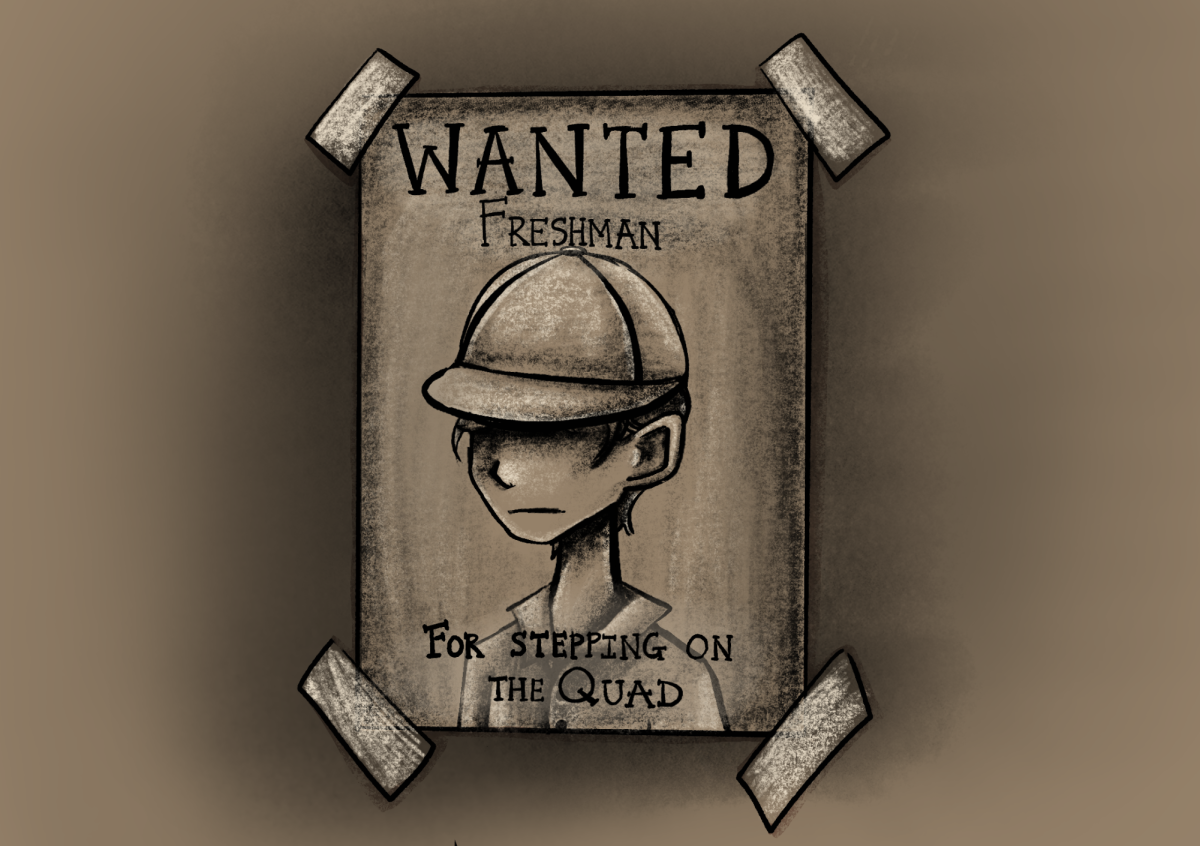Last night, we tried a “girl dinner,” a popular new diet trend that has taken the internet by storm.
“Girl dinner” was not a balanced meal. Our plates were arrayed with a handful of carrot sticks, two Sour Patch Kids and a dollop of Nutella straight from the jar.
“Girl dinner” is a social media trend that, at first glance, seems innocent and fun. The trend began with videos of women showing off their bizarre and unbalanced meals, often accompanied by a body check in which women film their desired body types. But this romanticization of unrealistic nutritional expectations for women highlights the heavy role desired aesthetics play in eating patterns. Women’s food choices can be made based on the desire for a perfect figure. This feminine ideal controls not just the things we eat, but also the things we buy, wear and do.
The association of unhealthy eating habits with slim figures promotes unrealistic expectations for young girls and women. When we see extremely toned women consuming a diet lacking vital nutrients and substantial food, we feel like they have found the answer. We must remind ourselves, however, that eating tons of junk food or a small bite of salad will not give us a “perfect” body. “Healthy” looks different on everyone.
![]()
Shortly after “girl dinner” broke the internet, “girl math” followed in its footsteps. “Girl math”’s suspicious financial justifications encourage unreasonable purchases with excuses like “if it’s on sale, it’s free” or “you need a new dress for every occasion.” “Girl math” is often promoted by older influencers who are receiving brand deals, meaning each addition to their wardrobe is received for free in exchange for a promotion towards their targeted audience, which is primarily female.

This facade leads young women to feel inferior to the rich influencers they idolize. These influencers can afford the perfect hair and outfit, giving them a look of effortless elegance that women look up to. When women realize this look is unattainable, it can disrupt self-esteem. Regular girls without unlimited funds can feel bad if they do not have the privilege to justify their spending with “girl math.” “Girl math” also plays into the stereotype that women often engage in frivolous spending–even though the traps these women fall into affect everyone, regardless of gender.
Attending a private institution such as St. John’s worsens the effects of “girl math” because of the large presence of wealth in the community. Financially privileged students are used to spending without consequence, creating a strong culture of insensitivity to those who lack the same financial security. This unrealistic standard affects girls who can’t relate to “girl math”’s benefactors–those who are unable to afford the same shoes, clothes, or products as their peers. Oftentimes, this rift creates a tension between wealthier and poorer students, especially since girls are held to an unattainable standard of trendiness all the time.
Although one could argue that these terms reclaim female stereotypes, they create a harmful culture of degradation when they become mainstream. Women are so used to engaging in self-deprecation as a form of humor that we forget the internalized misogyny that surrounds each comment. Not only do these phrases affect our perception of ourselves, but they also affect the perceptions of others. For a young girl trying to find her place in the world, trends like “girl dinner” and “girl math” can do more harm than good. Next time you consider basing your dinner or outfit off a mainstream trend, consider the cost of your decision: not just the damage it will inflict on your bank account, but also the damage it will inflict on your own self image.

















